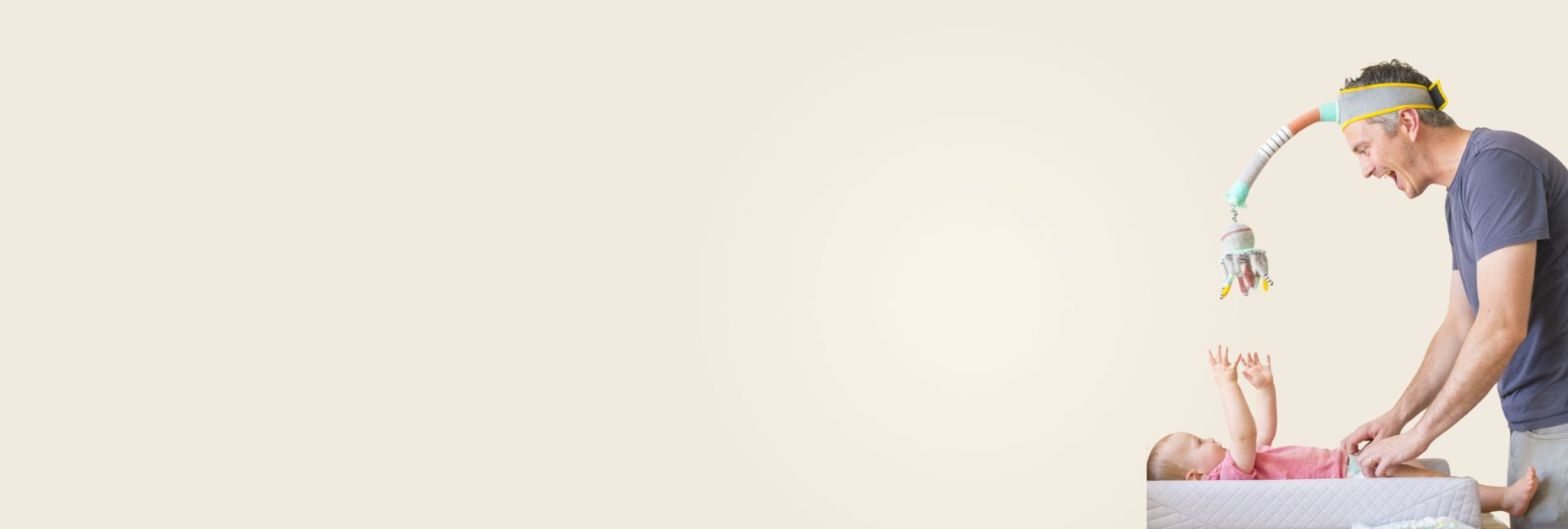How Much Sleep Do I Need Quiz [Quick 7 Question Sleep Quiz]
Yaaaawwwwwwwwwwwwn ... you feeling a bit sleepy today Mom and Dad?
Sleep is a crucial component of our mental health and well-being, yet most parents will admit they aren't getting anywhere near the amount of sleep they need.

We can be awakened at 2AM with a crying baby, or not be able to sleep after a particularly stressful day at work.
If you are wondering if you are getting enough zzzzzzzz's, our "How Much Sleep Do I Need?" quiz is a simple tool to help you gauge whether or not you are getting enough sleep.
How Much Sleep Do I Need Quiz
1. What is your age?
What Can I Do To Help Get More Sleep?
Now that you've completed the "How Much Sleep Do I Need?" quiz, you're on the path to better understanding your sleep requirements.
This easy-to-digest resource guide will provide you with information that can help you better understand sleep and its importance to your overall health and well being.
- Understanding Sleep Cycles for New Parents
As a new parent, your sleep is often fragmented due to your baby's needs. Understanding sleep cycles can help you maximize the quality of sleep you get:
- Each 90-minute cycle is crucial for restoration
- Even if you can't get 7-9 hours straight, try to complete full cycles
- Aim to time your sleep so you wake at the end of a cycle
- This can help you feel more refreshed, even with less total sleep
For new parents, knowing this can help you plan your sleep around your baby's feeding schedule, potentially improving your alertness and mood during wake times.
- The Importance of Sleep for New Parents
Sleep is especially critical for new parents due to:
- Cognitive function: Sleep deprivation can impair decision-making and problem-solving skills, which are crucial when caring for a newborn
- Physical recovery: Particularly important for mothers recovering from childbirth
- Emotional well-being: Lack of sleep can exacerbate postpartum depression and anxiety
- Immune system: New parents need a strong immune system to stay healthy while caring for their baby
- Safety: Sleep deprivation can increase the risk of accidents, which is particularly concerning when caring for an infant
- Factors Affecting Sleep Needs of New Parents
New parents have unique factors influencing their sleep needs:
- Recovery from childbirth: Mothers may need extra sleep for physical healing
- Breastfeeding: Can increase sleep needs due to energy expenditure
- Stress and anxiety: Common in new parents, potentially increasing sleep needs
- Physical demands: Caring for a newborn is physically taxing, requiring more restorative sleep
- Signs of Sleep Deprivation in New Parents
New parents should be particularly aware of these signs:
- Difficulty bonding with the baby
- Increased risk of postpartum depression
- Trouble with milk production for breastfeeding mothers
- Impaired ability to respond quickly to the baby's needs
- Heightened emotional reactivity, potentially straining relationships
- Creating a Sleep-Friendly Environment for New Parents
Adapting your sleep environment with a newborn:
- Use a white noise machine to mask baby sounds for uninterrupted parent sleep
- Invest in blackout curtains for daytime napping
- Keep the baby's sleeping area close but separate to minimize disruptions
- Consider a bedside bassinet for easy nighttime feeding
- Establishing a Flexible Bedtime Routine for New Parents
Adapting routines with a newborn:
- Create a abbreviated wind-down routine you can use even with limited time
- Practice relaxation techniques you can do while feeding or rocking the baby
- Use calming scents like lavender to signal sleep time, even if it's not nighttime
- Diet and Sleep for New Parents
Nutrition considerations for sleep-deprived parents:
- Choose easy, nutritious snacks for middle-of-the-night feedings
- Stay hydrated, especially if breastfeeding, but limit fluids close to sleep times
- Consider foods rich in melatonin like cherries or kiwis to promote sleep
- Exercise and Sleep for New Parents
Balancing physical activity with newborn care:
- Start with gentle postpartum exercises approved by your doctor
- Try short bursts of activity throughout the day when the baby is sleeping
- Include the baby in exercises, like walking with a stroller or baby-wearing workouts
- Managing Stress for Better Sleep as a New Parent
Stress management is crucial for new parents:
- Practice micro-meditations during baby's naps or feedings
- Share your feelings with a partner, friend, or support group
- Accept help from family and friends to reduce overall stress
- Consider online therapy options that fit into a new parent's schedule
- When New Parents Should Seek Professional Help
New parents should be especially attentive to sleep issues:
- Consult a doctor if you're experiencing symptoms of postpartum depression
- Seek help if sleep deprivation is severely impacting your ability to care for your baby
- Consider a sleep consultant specializing in infant sleep to improve overall family sleep
- Technology and Sleep Tracking for New Parents
Using technology wisely:
- Use baby monitor apps to take turns with night wakings
- Try sleep tracking apps to identify patterns and optimize your limited sleep time
- Use smart home devices to control lighting and temperature for quick sleep environment optimization
- Napping Strategies for New Parents
Maximizing short sleep opportunities:
- Master the art of power napping (15-20 minutes) for quick refreshment
- Coordinate naps with your partner to ensure childcare coverage
- Don't hesitate to nap when the baby naps, even if it's not your usual nap time
- Sleep and Productivity for New Parents
Maintaining functionality on limited sleep:
- Prioritize essential tasks and let go of non-critical responsibilities
- Use peak alertness times (often right after waking) for important activities
- Break tasks into smaller, manageable chunks that fit between baby's needs
- New Parent Sleep While Traveling
Managing sleep during trips with a newborn:
- Maintain your baby's sleep routine as much as possible
- Bring familiar sleep aids (white noise machine, swaddle) to create a sense of normalcy
- Consider room-sharing even if you don't at home to minimize disruptions
- Sleep Across the Lifespan: Focus on Infancy and New Parenthood
Understanding sleep needs for you and your baby:
- Newborns (0-3 months): 14-17 hours, but in short bursts
- Infants (4-11 months): 12-15 hours, including naps
- New parents: Aim for 7-9 hours total, even if broken into segments
Remember, while these are ideals, new parents often get much less. Focus on maximizing the quality of the sleep you do get.
How Much Sleep Do I Need?
Quality sleep is fundamental to your ability to care for your newborn effectively and maintain your own well-being. While achieving optimal sleep as a new parent is challenging, understanding its importance and implementing strategies to improve sleep quality can significantly impact your parenting experience.
Prioritize sleep as much as possible, be kind to yourself during this challenging period, and remember that this intense phase is temporary.
By focusing on sleep hygiene and using the strategies outlined here, you can improve your resilience, mood, and overall capacity to enjoy this special time with your new baby.





